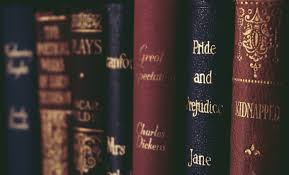“Literary merit” is what is used to determine which books have value in the literary world. The existence of this merit is usually decided based on style, prose, themes, or societal impact. Although, the boundaries that critics and others have set for literary merit do exclude books written in certain genres, targeted towards younger age groups, and those with lesser known themes.
Works of literary merit are selected by a system of people consisting of writers, critics, librarians, and readers. However, for centuries, Western books of value, or “literary canon,” have been decided by a group of elite, white men. To this day, the books handpicked by this group have affected which works of literature have value in Western culture.
Works that are written by authors such as Homer and Shakespeare were selected by these elites, as well as novels like Huckleberry Finn and even The Great Gatsby. However, it is worth noting that, at the time, these elites had the best access to schools, reading material, and even the tools to learn how to read. This advantage has led to a certain group of works being held at a higher regard than others due to the opinion of a very undiverse demographic of people.
Novels that were chosen later, after reading and writing became more accessible, were, and still are, limited by the considerations of literary canon, which is based on the opinion of the elites.
All the while, modern novels aren’t being chosen at all.
Novels such as Harry Potter, by J.K. Rowling, are argued to have literary merit by some and denied the presence of literary merit by others specifically because Harry Potter is considered to be a children’s book. Fantasy books, like The Way of Kings, by Brandon Sanderson, which are honored for their complex themes and characterization, are then criticized for their lack of poeticism and profusely fantastical writing that tends to be more commercial.
Nonetheless, these criticisms are quite odd because many of the books that are widely considered to have literary merit today have the same “negative” qualities listed above and the same critics seem to have no qualms over it. Popularity has played a role in some novels that have literary merit such as To Kill a Mockingbird and some have less poetic prose like The Outsiders.
This is the norm for the current “system” that chooses which works have literary merit. It is undecided and argued viciously which books have merit because there is no one group that chooses, whilst novels that were already decided to have literary merit are less often argued over or against.
The current inability to decide which novels have literary merit has played a part in forming the modern-day school curriculum as well. Classic novels that were already defined in their value have been taught in schools for decades with very little change on the horizon, despite the existence of other novels, freshly written, with all the same “requirements” for literary merit met.
One thing many critics will do is cut out certain genres of literature in their considerations. Romance novels, mysteries, science fiction, horror, and even fantasy are prone to be the victim to this cut. This leads to a selection of works of merit that is very limited in its view.
The current concern about literary merit lies within its validity and undefined nature. Whether literary merit is just a social construct, created by critics and elites to exclude certain authors, genres, and target audiences, or if literary merit is truly a universal concept. Many argue that literary merit is entirely subjective and that readers should be able to choose what they consider to have value.
In a consistently changing world, with constantly changing people, new novels released every day, and differing values everywhere, it becomes difficult to define value. The question becomes: Does literary merit still have a place in choosing one’s readings today?
